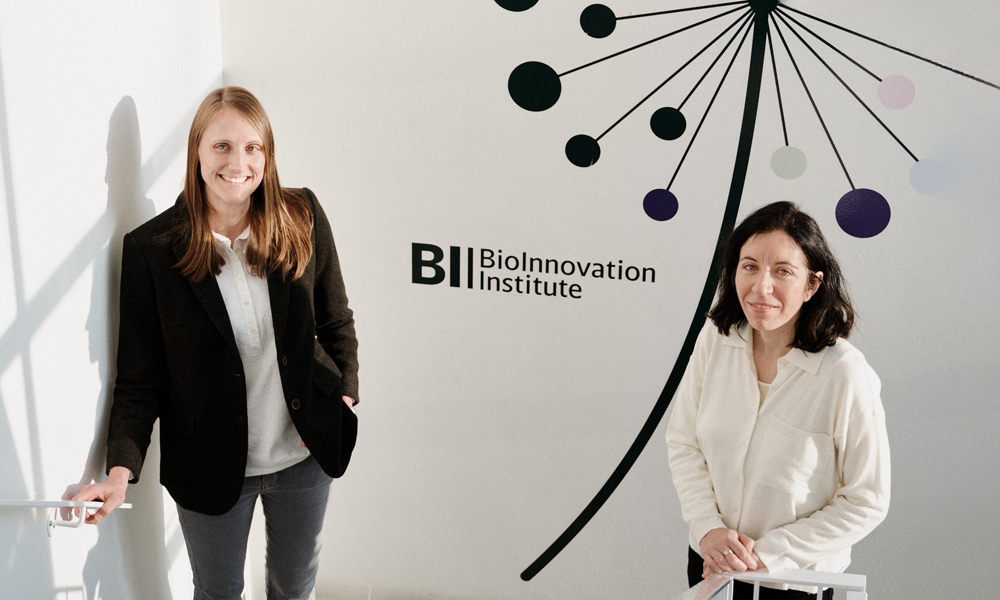EMBL researchers were awarded a BII foundation grant to support Model-MI - an in vitro model that mimics the maternal-fetal interface

Pregnancy is a period of both excitement and concern for the healthy development of the foetus and the well-being of the expectant mother. During the ~40 weeks of gestation, many external factors constitute a danger for mothers and their babies: raw food, alcohol, and medications, among other exposures, may lead to pregnancy complications. The most crucial protector against all foetal exposures is the placenta, the temporary foetal organ that regulates the exchange of all molecules - nutrients, gases, and wastes between mother and child.
Researchers at EMBL Barcelona present Model-MI - a human in vitro model that mimics the maternal-foetal interface of the placenta, allowing for the study of molecule exchange and drug transport.
Kristina Haase , Group Leader at EMBL Barcelona and Principal Investigator of the project, stated: "Our goal is to develop a reliable placenta model to enable drug safety testing by researchers and the pharma industry. The lack of information on drug safety leaves women having to make tough choices related to their own health. We need reliable models to test all drugs and vaccines for women."
Despite ~4 million annual births in the European Union , there is a lack of knowledge regarding drug safety and development for pregnant women and foetuses. Many medications - especially those for pre-existing conditions - remain untested for this at-risk group, despite the often continued use of one or more medications during pregnancy.
"There is an urgency for safety information on common drugs - those used for hypertension, cancer treatments, epilepsy, migraine, or common cold and flu," said Marta Cherubini, former research scientist at Haase Group, now Lead Scientist of Model-MI. "Animals are not good substitutes for safety testing on the human placenta, both for ethical and physiological reasons. A human model is desperately needed, and we aim to provide that with Model-MI."
The Model-MI Bio Studio project has received up to € 3 million in funding for the next three years from the BioInnovation Institute (BII). The grant will enable the project team to develop a robust, validated, and market-ready tool that has the potential to transform the drug industry targeting women's health. A small team is being established at BII in Copenhagen, led by Entrepreneur-in-Residence Pernille Singer, supported by Marta Cherubini as Lead Scientist and Kristina Haase as PI of the project.
Ultimately, Model-MI aims to address the drug-safety gap in pregnancy and the team at BII aims to take the project from lab bench to spin-out and make an impact for all women.
The Model-MI project is part of a broader collaboration between EMBL and the BioInnovation Institute (BII), designed to accelerate the translation of fundamental research into real-world innovations. EMBLEM Technology Transfer GmbH (EMBLEM), EMBL's wholly owned technology transfer partner and commercial arm, actively contributed to shaping the framework of this collaboration and managing EMBL's background and foreground intellectual property. This collaboration enables the Model-MI human placenta model to advance toward a validated, market-ready platform, bridging the gap between cutting-edge research and practical solutions to improve drug safety during pregnancy.






